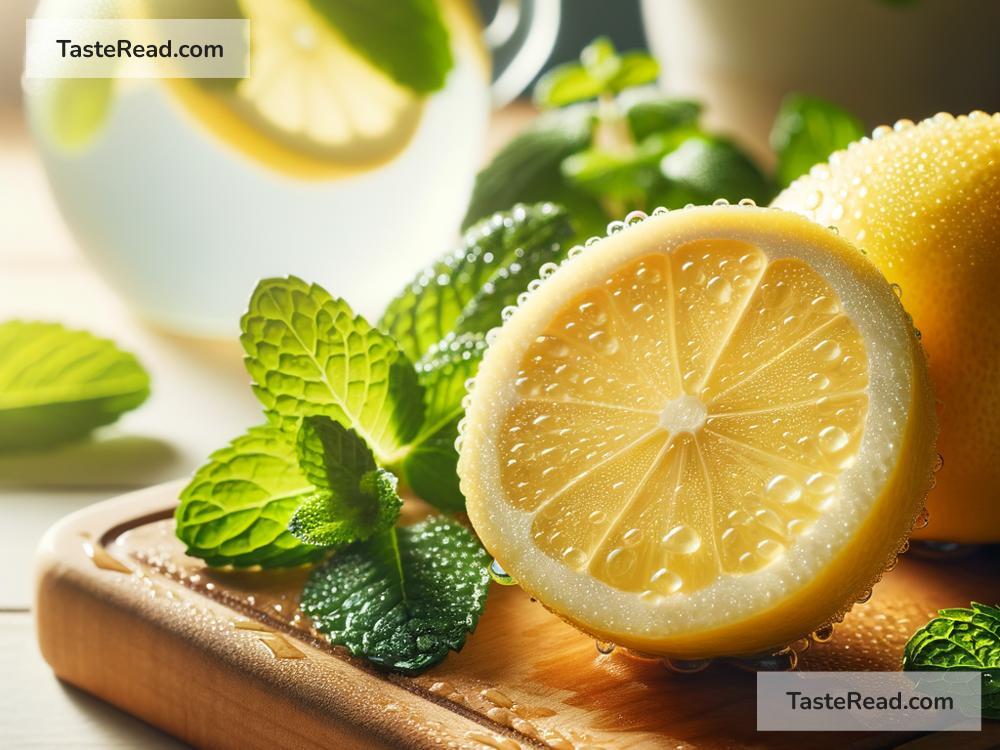How Lemons Became a Symbol of Freshness
When you think of something fresh and clean, chances are a lemon will come to mind. Its bright yellow color, zesty smell, and tangy flavor make it stand out in the world of fruits. But have you ever wondered why lemons became a symbol of freshness? Their journey from being just another citrus fruit to becoming an icon of cleanliness and vitality is fascinating.
The Natural Freshness of Lemons
Lemons have always been associated with freshness because of their nature. The fruit itself is refreshing. Its citrusy scent feels energizing, and its tangy taste can wake up your senses in an instant. Lemons grow naturally in sunny areas, and their bright yellow skin reminds us of warmth and sunshine, which also make us think of cleanliness and cheerfulness.
When you smell a lemon, it doesn’t seem heavy or overpowering. Instead, it’s light, airy, and invigorating. This is why lemons have been used for centuries as a natural way to brighten up spaces and people’s moods.
Lemons in Cleaning and Hygiene
One major reason lemons became a symbol of freshness is their use as a cleaning agent. Lemons contain citric acid, which helps cut through stains, grease, and odors. Long before chemical cleaning products were invented, people used lemons to clean their homes. The juice was perfect for scrubbing countertops, polishing metals, and deodorizing spaces. Because lemons are natural and safe, they were an ideal choice for cleaning.
Even today, many household cleaning products—like sprays, detergents, and air fresheners—have a lemon scent. This is no accident. Nothing smells fresher than lemons, and people feel their homes are cleaner when filled with the crisp smell of lemons.
Lemons in Food and Drinks
Lemons are also a symbol of freshness in food and drinks. Adding a slice of lemon or a squeeze of lemon juice can make any dish feel light and refreshing. Think of a tall, cold glass of lemonade on a hot summer day. Its tart yet sweet taste instantly quenches your thirst, waking you up and reminding you of the beauty of simple things.
Lemons help enhance the flavors of other foods too. From fish and seafood to salads and desserts, their acidity balances rich or heavy dishes. This harmony adds to their reputation as a fresh and energizing fruit.
The Psychology of Colors and Smells
The way we perceive freshness also has to do with colors and smells. Bright colors, like yellow, are cheerful and lively. Lemons fit this idea perfectly. Their yellow skin and clean white interior remind us of purity and energy.
Similarly, smells play a big role in how we view freshness. The human brain connects citrus scents, like that of lemons, with cleanliness and vitality. Their scent triggers positive feelings, making us think of fresh, clean spaces and sunny days.
Lemons in Advertising and Branding
Over time, lemons became a favorite in advertising because of their strong link to freshness. Many companies use lemons as part of their branding, especially for products connected to cleaning, beauty, and food. For example, laundry detergents promise “lemon freshness,” while skincare products use lemon extracts for glowing skin. Even beverages, such as flavored waters and teas, feature lemons as a key ingredient or scent.
This marketing strategy taps into our emotions. When we see lemons on a product label, we immediately think the product will be refreshing, natural, and clean.
Historical Roots of Freshness
The symbolic meaning of lemons goes back many centuries. In ancient times, lemons were not only prized for their taste but also for their health benefits. They were used to prevent scurvy and boost immunity. Their ability to keep people healthy added to their image as a fruit full of life.
In Europe during the Middle Ages, lemons were considered exotic and luxurious. Only the wealthy could afford them, and their sour yet pleasant flavor was admired. Over time, as trade expanded and lemons became more common in everyday life, their fresh qualities were appreciated by people across the world.
Lemons in Popular Culture
Lemons have made their way into popular culture too. In art, books, and movies, they often symbolize brightness and simplicity. They’re also featured in idioms, such as “When life gives you lemons, make lemonade.” This highlights their connection to positivity and renewal.
Even the simple act of slicing a lemon feels fresh. It’s hard to ignore the sharp yet pleasant smell that fills the air or the juicy texture of the fruit. Unlike other fruits, lemons are almost universally linked with feelings of clean energy, making them unique in the natural world.
Conclusion
Lemons are much more than just a fruit. They’ve earned their place as a symbol of freshness through their natural qualities, practical uses, and cultural significance. Whether it’s their bright color, uplifting scent, or refreshing taste, lemons remind us of vitality, cleanliness, and simplicity.
The next time you see a lemon, take a moment to appreciate its charm. From cleaning your kitchen to enhancing your food, this humble little fruit has been making the world a fresher, brighter place for centuries. Small but mighty, lemons truly embody the essence of freshness!


